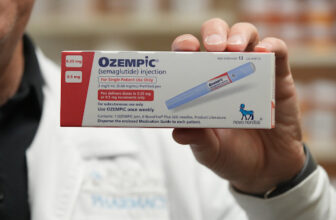
[adinserter block=”3″]
If you’re one of the nearly 10 million people in the United States who is immunocompromised, it means your immune system isn’t working at full strength. You can’t fight off diseases or infections such as Covid-19 as well as people with healthy immune systems. Conditions such as lupus, diabetes and asthma can weaken your immune system, as can getting treatment for cancer or having an organ transplant. And vaccines, including the Covid-19 vaccines, don’t always work as well as they do in healthy people. Any chance of infection can be scary, serious or even deadly.
In theory, new medicines and vaccines are the best way to keep vulnerable people, such as those with compromised immune systems, safe from infections. And clinical trials — scientific studies that identify and test new vaccines and treatments — are key to finding these new medicine and vaccines.
People who are immunocompromised need more protection from infections than people with healthy immune systems, but they actually have less protection. This is because, out of concern for safety, people with weakened immune systems have historically been left out of the research that helps scientists and medical professionals discover new vaccines and treatments. One study showed that more than half of clinical trials on flu and pneumococcal vaccines left immunocompromised people out, as did around 4 out of 10 of Covid-19 vaccine studies. Some studies explicitly leave out immunocompromised patients because the treatments themselves are designed for people with otherwise healthy immune systems.
Why participate in a clinical trial
When you join a clinical trial, you’ll be randomly assigned to a group that either gets the drug or vaccine being studied or does not. You won’t know which group you’re in until the study is over.
Taking part in a clinical trial may give you early access to vaccines or treatments before they’re available to the public. If it works, you’ll have gotten those benefits without having to wait.
Participating in clinical trials is also a way to contribute to scientific discovery. By being willing to be part of research on a new treatment or vaccine, you help others access drugs or vaccines that may save their lives or protect them from serious disease. Millions of people each year benefit from medical advances because a smaller group of patients were willing to take part in clinical studies. For example, Covid-19 vaccines were developed at record speed in part because of volunteers who participated in clinical trials. More than 270 million Americans have had at least one Covid-19 vaccine dose thanks to approximately 30,000 people who participated in a vaccine trial.
Globally, more than half (55%) of all clinical trials fail — or never get off the ground — because they don’t get enough participants. That means that discoveries that could help people may be delayed or may never become available.
Is it safe for immunocompromised people to take part in clinical trials?
Participating in clinical research can present risks. You could have a negative side effect that wasn’t discovered in earlier stages of research. Or, the drug or vaccine may not work for you at all.
But people who take part in these studies also have several protections. All clinical research has to be approved by an institutional review board (also known as an IRB), an oversight group at each university or research institution whose job is to make sure research is done ethically and with patient safety top-of-mind. Also, anyone who participates in a clinical trial must receive detailed information about their involvement in the study and be given an opportunity to fully read an informed consent document.
For medicines that don’t rely on triggering an immune response to work, there should be no difference in the way people with weaker immune systems respond to medications. That means that the general protections that are in place for people to participate in clinical research also protect immunocompromised people.
If you’re wondering, “Are clinical trials safe for me as an immunocompromised person?” the best thing to do is ask your healthcare provider (HCP). The research team leading the study will also give you details about the risks to you of participating.
How to find a clinical trial
If you’re interested in participating in clinical research, there are several ways to learn about those opportunities.
- You can search ClinicalTrials.gov, a database of clinical studies going on around the world.
- If you’re looking for research opportunities for a specific condition, you may find similar search tools but with a specific disease focus. For example, you can search the NIH Covid-19 Clinical Trial Finder for Covid-related studies.
- A number of private companies also offer searchable databases and matching tools to help you find clinical trials that you might qualify for.
- Ask your HCP for help finding a clinical trial.
What questions can I ask my provider before signing up for a clinical trial?
Before signing up to participate in a clinical trial, make sure you understand the risks and benefits. Your HCP can help. Here are some questions to ask:
- What’s the goal or purpose of this research?
- How long will my participation in the trial last?
- What’s involved in participating in the trial? (e.g., will I have to take a medicine, visit or stay in the hospital, travel to a clinic, etc.?)
- What are the possible side effects or risks?
- What are the possible benefits?
- Who will manage my healthcare while I’m in the trial?
- Will there be any costs to me?
- What if I feel like I can’t or don’t want to keep going — am I allowed to leave the trial?
- Will I get medical care as part of being in the trial?
- Who can I talk to if I have questions or problems while I’m in the trial?
Resources
AstraZeneca COVID-19 Clinical Trial Materials for Immunocompromised People
Español
COVID-19 Clinical Trials
Clinical Trials for Immunocompromised People
This educational resource was created with support from AstraZeneca.
From Your Site Articles
Related Articles Around the Web
[adinserter block=”3″]
Credit : Source Post






